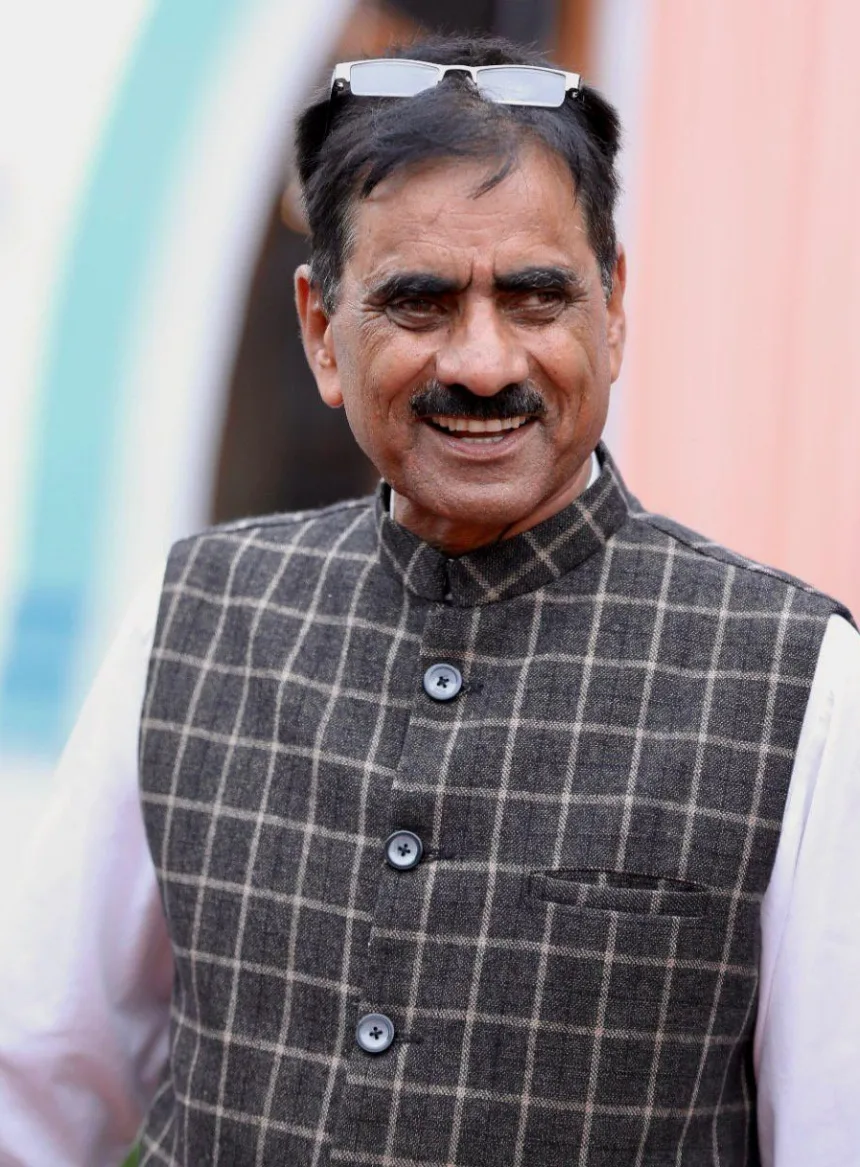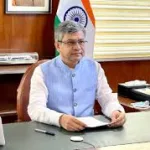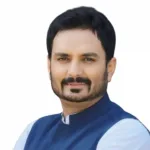AZHAR HAJINI
For the people of Kashmir, September is a month etched in memory with a complex palette of emotions. It arrives not just as a change of season, but as a poignant reminder of resilience in the face of nature’s fury, most notably the devastating deluge of 2014. The waters receded, but the memory of loss and upheaval lingers in the collective consciousness, a subtle ache that awakens with the autumn chill.
For our family, this month holds a more intimate, profound sorrow. September is the cruel milestone that, in 2021, marked the passing of our guiding star, my father, Dr. Aziz Hajini. Even as the fourth anniversary of his departure approaches on the 12th of this month, the reality of his absence remains a difficult truth to comprehend.
For a son who built a career on words as a television presenter and broadcaster the silence is deafening. There is no one now to gently chide me for a mispronounced word or to gift me an impressive new sentence to elevate my next show. His was the keenest ear for the music and grammar of language, a master composer always fine-tuning the symphony of expression.
My father was a fortress of strength and compassion. I often find my mind drifting back to those tumultuous weeks during the 2014 floods. As chaos engulfed Srinagar, he was the steadfast captain of our ship, navigating unimaginable odds to ensure our safety. He secured us a single, large room with a dozen beds in a hotel nestled in the foothills of the Zabarwan Mountains.
In the heart of a crisis that had brought an entire valley to its knees, he focused singularly on our comfort. And then, in a moment that perfectly captured his spirit, he looked at us all, huddled together but safe, and said with that characteristic wit, “Perhaps this flood has given us one gift the chance to sit together, truly together, without the distraction of our mobile phones.” We laughed, a moment of light carved out of the darkness by his incredible courage. He protected us from the floodwaters as he had from every other storm life presented.
Years later, when the cruel tide of illness came for him, we rallied around him with the same ferocious love, striving to be his fortress. But September, that month of poignant duality, had other plans, and it stole from us the man with a mission.
Since that day, each September has arrived draped in a cloak of grief, a painful reminder of the void he left behind not just in our family, but in the cultural and literary heart of Kashmir. Dr. Aziz Hajini was not merely a father; he was a poet whose verses stirred the soul, an author who chronicled our heritage, a visionary administrator, and a cultural architect.
His monumental literary work in Kashmiri set a benchmark for excellence and authenticity. As the Secretary of the Jammu & Kashmir Academy of Art, Culture, and Languages, he did not merely hold an office; he ignited a reinaissance, setting a standard of unparalleled work that revitalized the institution as a true cradle of Kashmiri heritage.
His vision extended far beyond the walls of the Academy. He was a guiding force, the North Star for countless students and cultural workers, showing a clear path to walk upon through the vital literary and cultural organisations he championed Adbee Markaz Kamraz, Halqa-e-Adab Sonawari, and the Wahab Cultural Society Hajin. These were not just organisations to him; they were the very ecosystems where the language and culture could thrive, and he nurtured them with a scholar’s mind and an activist’s heart.
This year, however, September brought with it a subtle, healing balm. It whispered that while the man may have departed, his mission is very much alive. It is living, breathing, and thriving in the countless lives he touched and the talents he nurtured with his discerning eye. The path he showed so many is now well-trodden by those who continue his work.
The first solace came with the news that Mohammad Shakir Wani (Shakir Shafi), a beloved student whom my father groomed in the world of literature and culture, was conferred the UT Level Best Teacher award. In Shakir’s achievement, we heard the clear, proud echo of my father’s teachings.
Then, a second, even more resonant echo followed. From the global airwaves, a voice began to captivate Kashmiri speakers everywhere a voice of pure, heartfelt melody singing in the film Songs of Paradise. I learned from a colleague at Doordarshan that this sensational new talent was none other than Masrat un Nissa.
The name sent a shock of joyful recognition through me. Masrat? Could she be the same young girl, then in the 5th or 6th standard, whom my father had discovered years ago in a Government school in the far-off town of Charar-i-Sharief in Budgam? He, with his unerring instinct for genius, had heard something unique in her voice.
He immediately made her the opening act for every literary and cultural event he supervised, her voice breathing life into the verses of Kashmir’s revered saint, Sheikh ul Alam (RA). He brought her to perform before dignitaries and other high-caliber personalities, beaming with pride as audiences showered her with praise and gifts. At home, he would tell us, “She is your youngest sister.”
When I finally connected with an emotional Masrat, her first words were not of her newfound fame, but of him. “This is all because of Hajini Uncle,” she wept. “I keep telling my family, if only he were alive to see this, how happy he would be. He always wished to see me touch these heights.” In her success, his vision had come full circle. Reconnecting with her and helping introduce her to a wider audience has been my privilege, and in every conversation we have, his spirit is there, a silent, joyful third presence.
And so, this September, the pain of memory is now intertwined with the profound comfort of legacy. The great scholar may no longer be with us in person, but he is eternally present in the curriculum of a school child learning Kashmiri, in the institutional foundations he strengthened, in the vibrant work of the cultural organisations he inspired, and in the soaring voice of a young girl from Charar-i-Sharief who sings for the world.
He is gone. But through his students, his institutions, and his unhesitating mission, his echo is truly unfading.
(Author is Columnist, Television Presenter, Stage Host and Cultural Activists. He can be reached at: [email protected])






